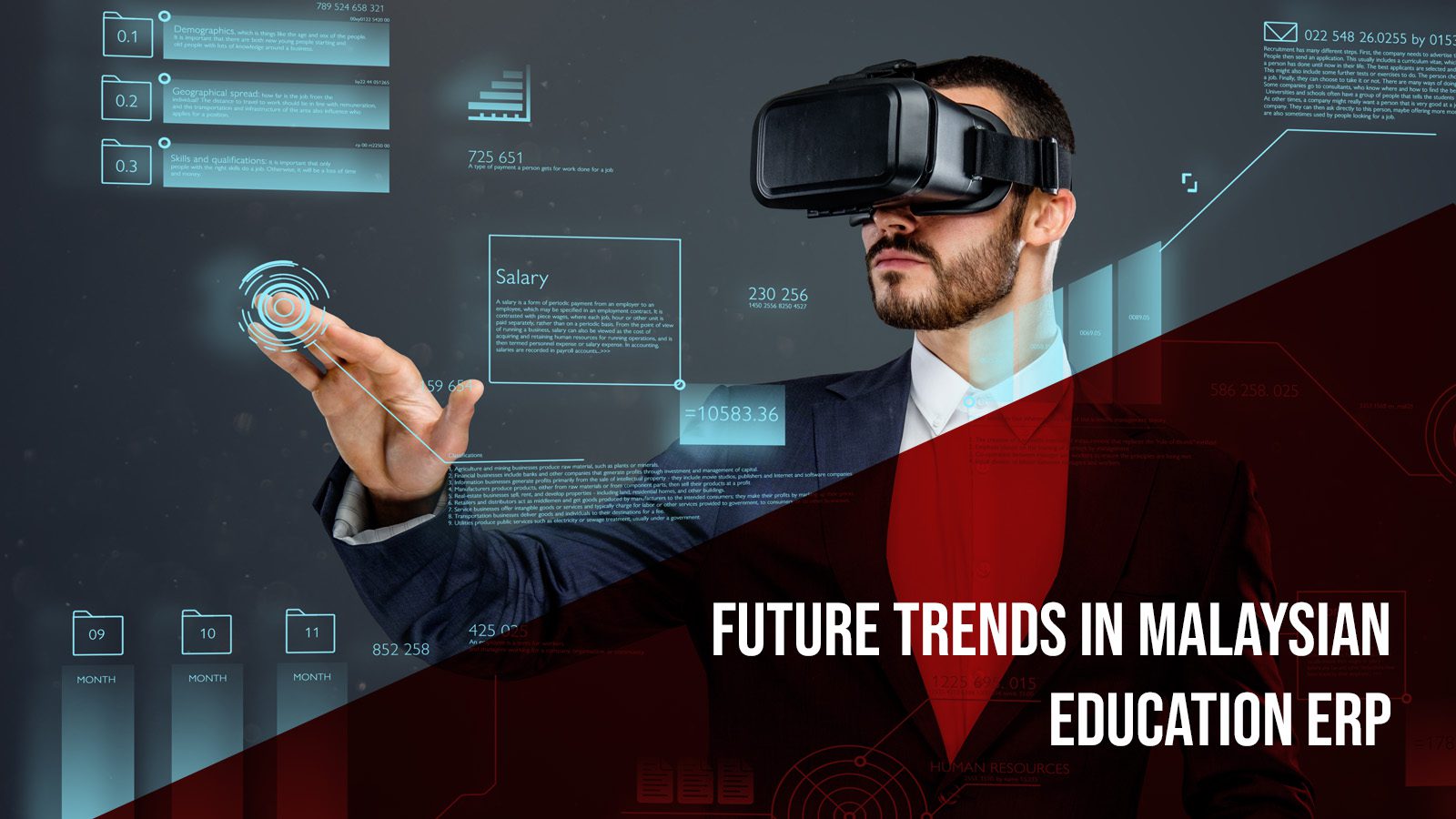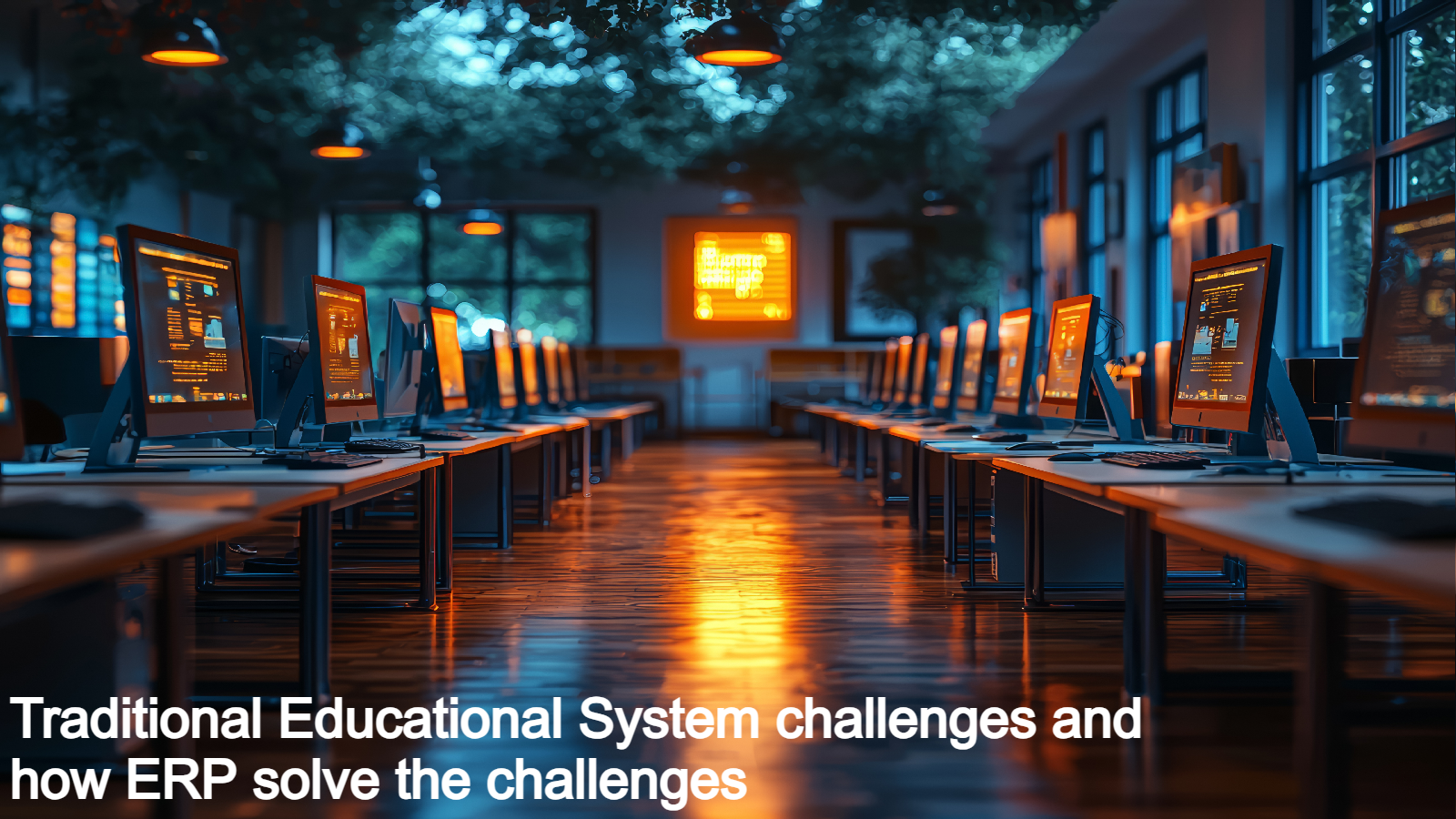Education ERP Software in Malaysia
Malaysia’s education sector is going through a transformation with Enterprise Resource Planning (ERP) software at the center of it. Educational institutions in Malaysia are facing the need for efficiency, accessibility, and enhanced learning experiences, making Education ERP software a necessity. The future trends in Malaysian Education ERP promise a digital revolution that will shape the way students learn, educators teach, and institutions operate.
In this blog post, we will look into some future trends in Education ERP software.
Introduction
In recent years, Malaysia has witnessed a significant shift in education. Traditional methods of teaching, learning, and operating educational institutions are changing with most of them turning to digital tools such as ERP software.
While ERP software was first introduced in the manufacturing sector, they have started gaining significance in different sectors, such as education.
The Current Landscape of Malaysian Education ERP
Before diving into the future, it’s crucial to understand the current state of Education ERP software in Malaysia. Education ERP software has the following features and capabilities:
Student Information Management
Education ERP systems in Malaysia offer robust student information management such as admission processes, enrollment, academic records, and tracking student progress throughout their educational journey.
Financial Management
ERP systems help manage budgets, allocate resources effectively, and provide detailed financial reports.
Human Resource Management
ERP systems streamline human resource processes, including payroll management, employee attendance tracking, and performance evaluation.
Learning Management System (LMS) Integration
Many ERP systems in Malaysia seamlessly integrate with Learning Management Systems to provide a platform for managing both administrative and academic aspects.
Communication and Collaboration Tools
ERP systems facilitate better collaboration among students, teachers, and administrators.
Data Analytics and Reporting
ERP software provides real-time insights into student performance, finance and other key aspects.
Rise of Cloud-Based Solutions
One of the most notable trends is the adoption of cloud-based Education ERP solutions. This shift allows institutions to access data anytime, anywhere, enabling greater flexibility and collaboration among students and educators.
Integration of Artificial Intelligence (AI)
From intelligent chatbots providing instant support to personalized learning based on student performance analysis, the integration of AI promises a more tailored and efficient educational experience.
Personalized Learning Experiences
Future Education ERP systems will prioritize personalized learning experiences. By using data analytics, institutions can understand each student’s unique learning style and adapt to it accordingly, promoting better understanding and retention.
Enhanced Data Security Measures
As technology advances, the need for robust security measures also increases. Future Education ERP systems will prioritize data security, ensuring that sensitive student and institutional information remains protected from cyber threats.
Mobile Optimization for Accessibility
In an era where mobile devices are common, future Education ERP systems will prioritize mobile optimization. This ensures that students, educators, and administrators can access crucial information anytime and anywhere, fostering a seamless and convenient educational environment.
Collaborative Learning Platforms
The future of education is collaborative. Education ERP systems will evolve to include features that allow collaborative learning, ensuring students engage in group projects and discussions seamlessly.
Analytics and Predictive Insights
Analytics will play a crucial role in shaping the future of Malaysian Education ERP. Institutions will harness the power of data to gain insights into student performance, identify areas for improvement, and implement measures to enhance educational outcomes.
Sustainability in Education ERP
With a growing emphasis on sustainability, future Education ERP systems will incorporate eco-friendly features. From paperless administrative processes to energy-efficient data centers, institutions will work towards a sustainable environment.
Training and Support Mechanisms
Recognizing the importance of user proficiency, future Education ERP implementations will emphasize comprehensive training and support mechanisms.
The Role of Blockchain in Education
Blockchain technology will find its way into Education ERP systems, ensuring the security and authenticity of educational records. This innovation will streamline verification processes and reduce the risk of fraud.
Conclusion
The future trends in Malaysian Education ERP promise a dynamic and technology-active environment. From AI integration to mobile accessibility and sustainability, institutions are set to embrace a new era of education. By staying updated with these trends, Malaysian education can ensure its place at the forefront of global educational innovation.
Frequently Asked Questions (FAQs)
What is Education ERP, and how does it benefit the Malaysian education system?
Education ERP (Enterprise Resource Planning) is a software solution that integrates administration, academics, finance, and human resources. In Malaysia, implementing Education ERP systems enhances efficiency, transparency, and collaboration within educational institutions. It streamlines processes, facilitates data-driven decision-making, and improves overall educational management.
How can Education ERP contribute to personalized learning in Malaysian schools and universities?
Education ERP systems enable the implementation of personalized learning by tracking individual student progress, identifying learning gaps, and providing tailored resources.
How can Education ERP systems contribute to the digital transformation of Malaysian schools and universities?
Education ERP software facilitates the transition from manual to digital processes, enabling online learning, virtual classrooms, and remote collaboration.
What is the cost implication of implementing Education ERP in Malaysian educational institutions?
The cost of implementing Education ERP varies based on the size and requirements of the institution. However, it’s essential to consider the long-term benefits such as increased efficiency, reduced administrative costs, and improved educational outcomes.
How can Education ERP systems accommodate the diverse needs of Malaysian educational institutions?
Education ERP systems are designed with flexibility in mind, allowing customization to meet the specific needs of Malaysian educational institutions. Whether it’s a school, college, or university, the nature of ERP systems enables institutions to adapt and scale the solution according to their unique requirements.
What is the role of artificial intelligence (AI) in shaping the future of Malaysian Education ERP?
AI plays a significant role in enhancing the capabilities of Education ERP systems. It enables automation, personalization of learning experiences, and data-driven decision-making. Integrating AI into Malaysian Education ERP systems ensures that institutions stay ahead of the technological advancements in education.








